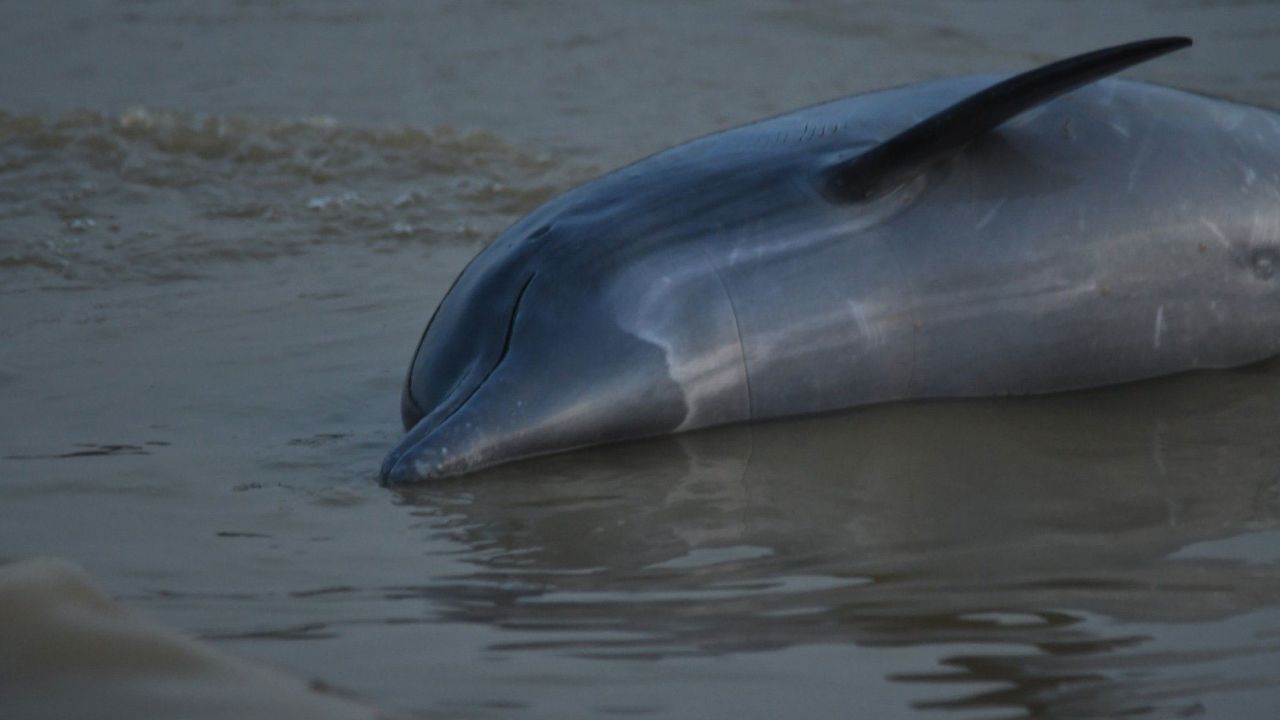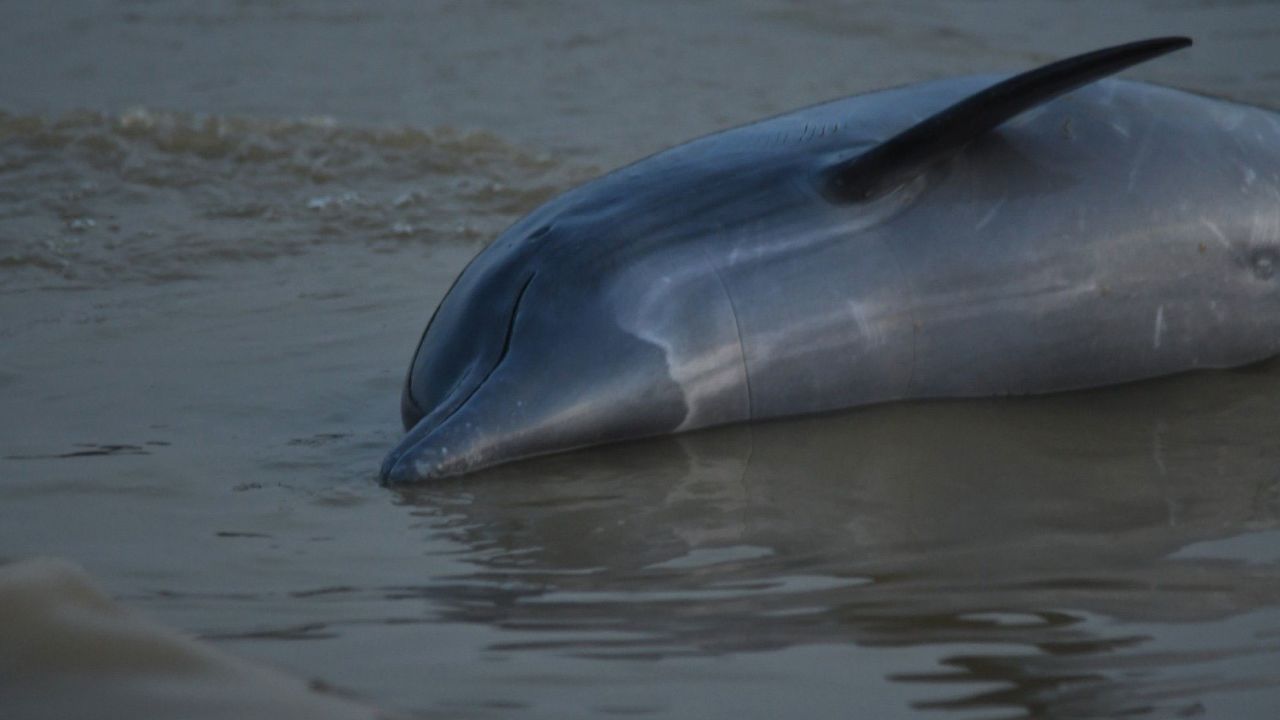
BRASILIA, Oct 2 (NNN-AGENCIES) — More than 100 dolphins were found dead over the past week in the Amazon rainforest in Brazil amid a severe drought and hot water temperatures, according to reports.
The Mamirauá Institute for Sustainable Development, a research facility funded by the Brazilian Ministry of Science, Technology and Innovation, found the dead dolphins in Lake Tefé over the past seven days. Researchers believe the mass death is related to the Amazon’s ongoing drought and recent triple-digit weather.
“It’s still early to determine the cause of this extreme event but according to our experts, it is certainly connected to the drought period and high temperatures in Lake Tefé, in which some points are exceeding 39 degrees Celsius (102 degrees Fahrenheit),” the institute said.
In addition to the dolphin deaths, thousands of dead fish have also appeared at Lake Tefé.
The Amazon River is the world’s largest waterway and its basin is connected to the Amazon Rainforest, famed for its rich biodiversity where millions of species live.
But human activity and extreme weather in the region have raised environmental concerns. The Amazonas state declared an environmental emergency in September in response to the historic drought and launched a response plan valued at $20 million.
Brazilian authorities said the drought may affect around 500,000 people by the end of the year. Many residents and natives are already struggling to access essential supplies, such as food and water.
The main mode of transportation in the region is waterways but the prolonged drought has caused historically low river levels. The drought has also impacted fishing, a means of subsistence for many riverside communities.
The Amazonas state’s civil defense agency said in a statement in September that authorities will distribute food and water supplies, and personal hygiene kits to help communities. According to Amazonas state Gov. Wilson Lima, different levels of government will support the affected municipalities.
As of last week, 15 municipalities were in a state of emergency and 40 others were on a state of alert, the civil defense authority said.
According to the civil defense authority, the drought is expected to be more intense and last longer due to the El Niño climate phenomenon.
El Niño is a natural climate pattern where seawater in the central and eastern tropical Pacific Ocean is warmer than average. The phenomenon can affect storms and weather patterns around the world, including inhibiting the formation of rain clouds. — NNN-AGENCIES






